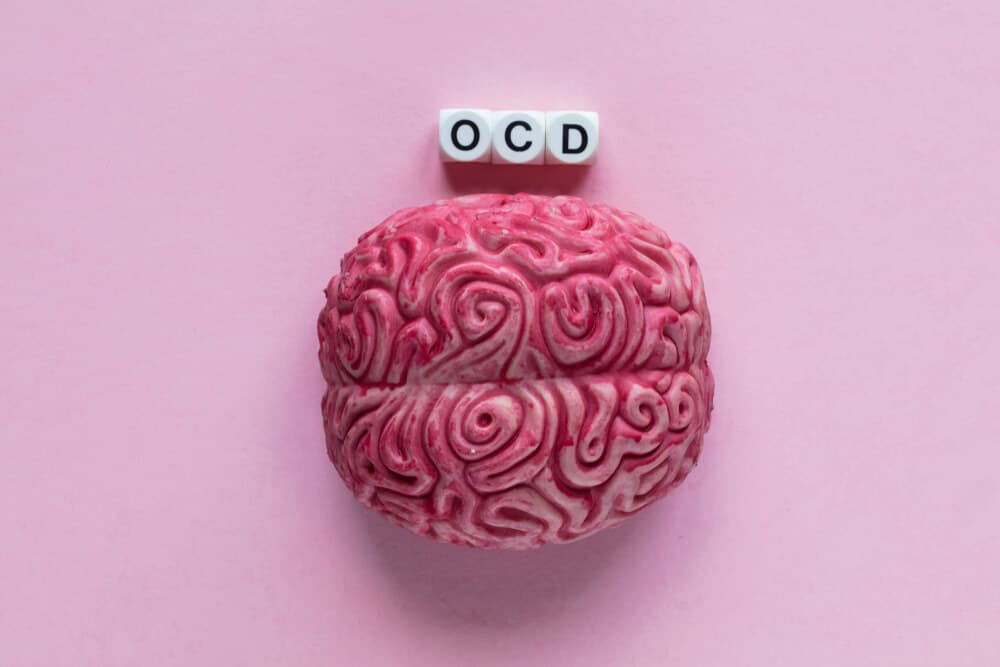Obsessive Compulsive Disorder (OCD) and Obsessive Compulsive Personality Disorder (OCPD) sound similar, yet the two have some differences. While OCD generally pertains to consistent actions backed by compulsions, OCPD refers to a personality disorder. Differences between OCD vs OCPD can sound minimal to those who do not live with either.
Symptoms of both OCD and OCPD can have huge impacts on a person’s day-to-day life, including the ability to function or carry out normal tasks easily. If left untreated, these conditions can drastically change people’s lives and relationships.
OCD
OCD is built from obsessions followed by compulsions to act on those obsessions. Comparatively, OCD is more symptomatic than characteristic of an individual’s personality.
OCD obsessions and compulsions typically affect most or every aspect of a person’s daily life, including their work, relationships, habits and even anxiety. Most of the time, people with OCD are aware of their obsessions and realize they are irrational. Obsessions and compulsions in OCD also usually take up a lot of a person’s time and energy.
Obsessions
Common OCD obsessions include:
- Unwanted, intrusive thoughts that may result in anxiety
- Uncontrollable or unmanageable thoughts that lead to compulsive behaviors
- Fixation on unwanted, intrusive thoughts that may result in anxiety
Compulsions
- Performing tasks or behaviors as a result of unwanted, intrusive thoughts
- Repeating behaviors until obsessions subside
- Acting on obsessions due to fear that there will be consequences without action
OCPD
OCPD is a personality disorder characterized by the obsessive regard to orderliness, perfectionism and control over one’s environment and relationships. Similar to OCD, OCPD is also characterized by obsessions and compulsions, though they differ from those of OCD.
Typically, people with OCPD are unaware of their symptoms because they are generally rooted in their personal belief systems.
OCPD Hallmarks
Common OCPD characteristics include:
- Extreme perfectionism
- A need and desire for control over tasks, relationships and work- or school-related projects
- High focus on work and/or school with little to no relaxation time or time with family and friends
- Hoarding
- Strict adherence to beliefs and/or thoughts
The Differences
In most cases, OCPD symptoms are present for a longer period of time in comparison to OCD symptoms, with the main reason being OCPD is a personality disorder. And, according to Psychology Today, people with OCPD do not experience unwanted thoughts that encourage them to create routines, like those with OCD. Even though both OCPD and OCD involve obsessions and compulsions, the two conditions differ. Other differences include:
- OCPD is a personality disorder; OCD is not
- A need for perfectionism in OCPD; a need to act on compulsions rooted in unwanted thoughts in OCD
- Long-term symptoms in OCPD; mostly short-term symptoms in OCD
- Difficulty or unwillingness to agree to treatment or change in OCPD; more willingness to treatment in OCD
- Unawareness of obsessions and compulsions in OCPD; awareness of obsessions and compulsions in OCD
- A feeling of certainty, or being correct in thoughts in OCPD; discomfort from obsessive thoughts in OCD
Treatment Options
OCD and OCPD have similar treatment options. If not properly treated, these conditions can potentially result in extreme, chronic anxiety, depression and stress. Common clinical treatment options include:
- Mental health counseling
- Medication, including Selective Serotonin Reuptake Inhibitors (SSRIs)
Most counseling for OCD and OCPD may involve the following techniques:
- Cognitive Behavioral Therapy (CBT), a common therapeutic approach that aims to alter unhealthy thoughts, feelings and actions
- Meditation and breathing techniques to center emotions and feelings
- Talk therapy that focuses on stress-reducing techniques
Some clinicians may recommend medication and counseling to their clients. In severe cases, medication can make the counseling part of treatment easier for the client. Just like with other personality disorders, it is critical to openly discuss your symptoms and treatment feedback with your doctor and/or therapist.
Final Thoughts
In order to fully understand the difference between OCD vs OCPD, it is important to seek guidance from a mental health professional, like a counselor, psychiatrist or psychologist. Mental health clinicians have the proper education, training and tools available to diagnose and treat clients with OCD and OCPD.
Seeking professional help for OCD or OCPD can help those living with these conditions to better manage their symptoms and ultimately create a healthier lifestyle.









